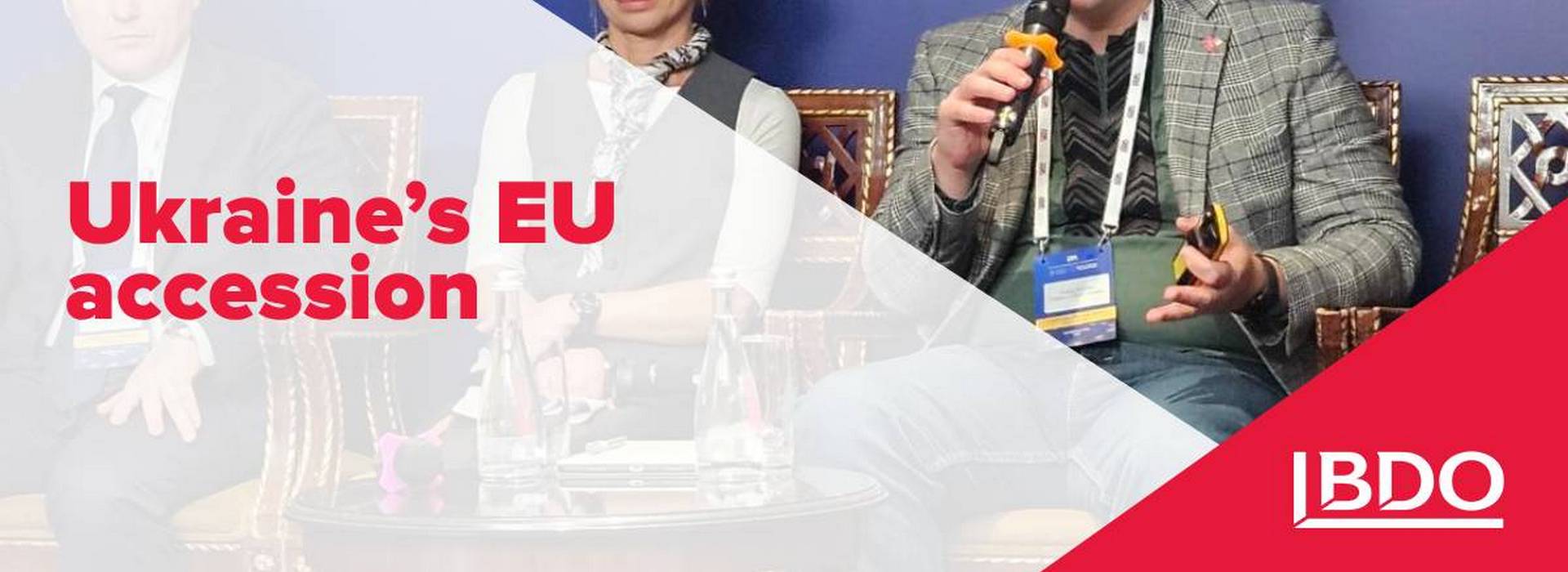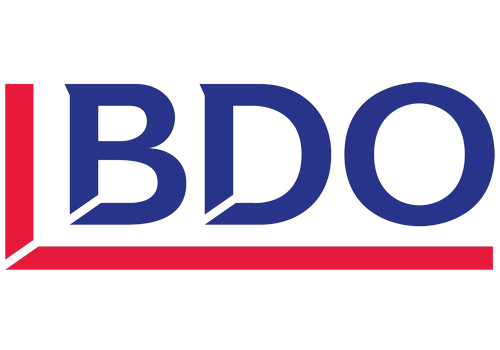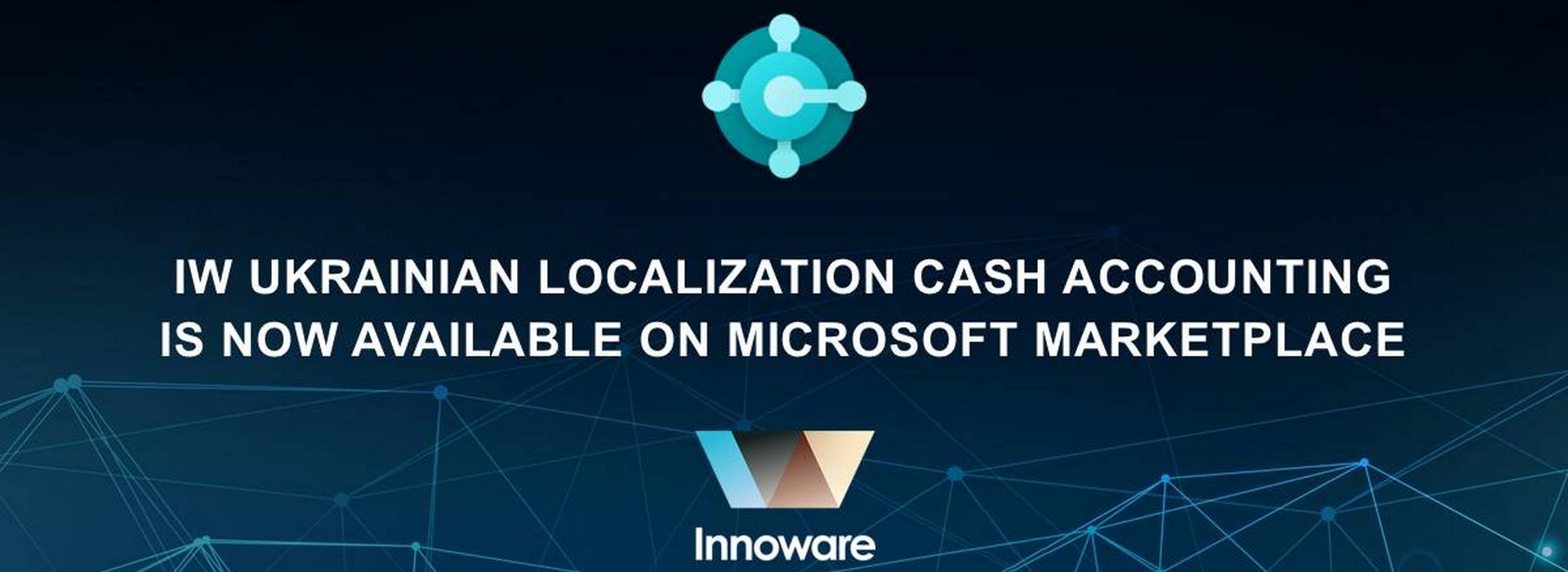On October 17, Kyiv played host to the conference “Ukraine on the Way to the EU,” which brought together government and business representatives to discuss the European integration processes currently underway in Ukraine. BDO in Ukraine was represented by Andrii Borenkov, Head of Advisory, and Olga Korniichenko, Business Development Executive.
At the conference, participants discussed Ukraine’s preparedness for EU accession negotiations and the business readiness for integration into the single European market. Government representatives underscored the significance of implementing reforms and meeting European standards, which will serve as the foundation for future negotiations. Business leaders concentrated on export prospects, adaptation to European regulations, and integration challenges. The discussion encompassed opportunities to expand cooperation with the EU countries and the necessity for coordinated efforts between the public and private sectors for successful integration.
See the key insights from the discussions below.
The event commenced with a video address by Valdis Dombrovskis, Executive Vice President of the European Commission. Mr. Dombrovskis emphasized that Ukraine’s accession to the EU will be a priority for the next Commission. He highlighted that Ukraine’s integration into the EU single market is already underway through a comprehensive action plan that will drive economic growth and open new opportunities, particularly for small and medium-sized businesses. The European Union and its member states will support Ukraine in deterring russian aggression, with the goal of ensuring a successful EU accession process.
Svitlana Mykhailovska, Deputy Director of the European Business Association, presented the results of a survey on the readiness of the Ukrainian business community for the European integration. The study revealed that 71% of companies perceive a positive impact from the EU integration process, while 8% of respondents indicated a negative impact. Svitlana highlighted that digital transformation and media, transport policy, and the agricultural sector are among the areas with the greatest progress.
However, there are also significant obstacles to overcome. EBA members identified low institutional capacity (78%), lack of expertise (71%), and lack of political will (62%) as the main factors hindering the process of European integration. To overcome these barriers, it is necessary to build institutional capacities and increase the level of knowledge and competencies in business. (A detailed report on the survey results is available here.)

Svitlana also highlighted the significance of business involvement in shaping Ukraine’s negotiating positions. She underscored the value of direct dialogue and collaboration between the government and the business community for an effective transition to EU standards and full integration into the European market.
As Katarina Mathernova, Ambassador of the European Union to Ukraine, has noted, the strengthening of ties between Ukraine and the EU is one of the effects of russian aggression. While this has not compensated for the severity of the situation, it has contributed to faster integration. The EU has opened markets for Ukrainian services, accepted millions of refugees, and increased regulatory changes and integration processes, which have accelerated significantly over the past two years. She noted that 95% of Ukrainian companies plan to trade with the EU, which is a high figure and reflects growing awareness and determination.
Katarina Mathernova highlighted that the EU’s support for Ukraine encompasses not only financial assistance but also technical guidance and assistance in aligning with European standards, with the objective of enhancing trade relations with the EU. She also noted the notable acceleration of integration processes, particularly in view of the signing of the Association Agreement and the DCFTA (Deep and Comprehensive Free Trade Area), which has facilitated enhanced access for Ukraine to the European market.

In her speech, Olena Shuliak, Head of the Verkhovna Rada Committee on Organization of State Power, Local Self-Government, Regional Development and Urban Planning, discussed new directions of Ukrainian policy in the context of the European integration and green recovery. She highlighted the importance of a human-centered approach in shaping the state strategy.
“I am delighted that one of the core principles of our new legislative framework is the principle of human-centricity, as it ensures that individuals are at the center of all processes, particularly in a matter of such significance as the restoration of the country”
Furthermore, Olena Shuliak discussed the updating of state regional development strategies, which includes a review and clarification of regional priorities in line with the needs of local communities and potential investors. She announced that by February 2025, all regions will be required to update their strategies, which will form the basis for identifying specific steps and mechanisms for implementing these strategies in practice.
In the context of monitoring and evaluating the implementation of the strategies, Olena noted that Ukraine is integrating into European standards by using indicators of sustainable development, smart cities, digital and green transition. She added, “We expect that these indicators will become benchmarks for local governments and our business, so that each region can specifically measure and understand its progress within the framework of national strategies.”
In conclusion, Olena Shuliak presented Ukraine’s proactive approach to reforming its regional policy and implementing a circular economy strategy that addresses environmental protection and sustainable development. These innovations are designed to ensure balanced regional development and enhance environmental awareness among citizens.
Taras Kachka, Deputy Minister of Economy and Trade Representative of Ukraine, proceeded to elaborate on the ongoing integration processes with the European Union. He observed that the work in this area is structured and bureaucratic, which can sometimes appear tedious but is crucial for ensuring a smooth transition. Currently, Ukraine is actively establishing thematic working groups to oversee the implementation of European integration bills. This facilitates the realization of strategic objectives and is vital for engaging in international negotiations and aligning with EU standards.
Taras Kachka also identified the potential risks and challenges that emerge during negotiations with the EU, particularly the high demands on comprehensive analysis of legislation and implementation of norms. He emphasized that despite the support of the European Union and a favorable assessment of the draft laws, there may be shortcomings in practice that require attention and additional work. This calls for a more thorough and serious assessment of the compliance of Ukrainian legislation with EU requirements, especially in the early stages of bilateral meetings, which can contribute to successful integration and implementation of domestic reforms.
At the conclusion of the panel discussion on Ukraine’s preparedness for EU accession negotiations, Oleksandr Ilkov, Director General of the Government Office for Coordination of European and Euro-Atlantic Integration, emphasized the intricacy of Ukraine’s accession process. He noted that each EU member state evaluates Ukraine based on its achievements and fulfillment of criteria, which makes the negotiation process more complex due to the need to coordinate positions with each country separately. It is essential to negotiate exemptions and transitional periods to facilitate integration into the EU legal framework. These negotiations require clear coordination and cohesion at the national level to ensure the successful implementation of European standards.
The second part of the conference was dedicated to the topic of business readiness for European integration.
Olga Balytska, Co-Chair of the EBA Recovery Committee, underscored the necessity of integrating European values not only into legislation but also into the everyday lives of Ukrainians. She highlighted the value of the new European Bauhaus as a model for rebuilding Ukraine, emphasizing the use of environmentally friendly materials and technologies. Olga stated that this approach not only promotes energy efficiency and social inclusion, but also stimulates the integration of modern architectural and design solutions that facilitate better interaction and physical activity of people. She emphasized that the implementation of this approach requires a deep rethinking and active participation of all stakeholders. “It would be beneficial to incorporate the values of the European Union not only into our legislation, but also into the daily lives of all individuals, as Ursula von der Leyen proposed.”
In practice, the successful implementation of such ideas requires a comprehensive analysis of the projects in question, with a view to ensuring that they comply with the relevant investment standards.
Andrii Borenkov, Head of Advisory at BDO in Ukraine, highlighted the critical challenges in project implementation, particularly the lack of preparation and inadequate financial modeling. It is not uncommon for submitted projects to be merely concepts that fail to meet the rigorous standards of investors and donors. He highlighted that to successfully attract funding, it is essential to develop every aspect of the project in detail, from technical solutions to financial calculations, and to ensure the presentation design is of a high standard. This will significantly increase the confidence of potential investors in a project. This approach applies not only to businesses, but also to municipalities and nonprofit organizations.
Moreover, Andrii addressed the issue of fundraising, noting that many teams request full funding without their own contribution, which can erode investor confidence. He emphasized the importance of co-financing and a well-structured plan as key factors for success.
Anton Tyutyun, Deputy Chairman of the Management Board of JSC “Oschadbank” and Chairman of the EBA Electronic Payments Committee, provided insights on the digitalization of the banking sector in Ukraine and its alignment with European standards. He highlighted that Ukraine has a notable advantage in the speed and efficiency of its digital services, which are far ahead of many European countries. However, there is still a challenge in adapting our systems to European standards, especially in terms of joining the European payment system SEPA (Single Euro Payments Area). Anton noted that this would require significant efforts on the part of the National Bank of Ukraine and other financial institutions, as well as several technical and legal issues. He emphasized that joining SEPA will open new opportunities for the Ukrainian financial sector and consumers, as it will “allow for reduced tariffs, increased transparency, and fair competition.”
Maksym Barabash, Managing Director of Philip Morris Ukraine, underscored the significance of transnational corporations in the context of Ukraine’s economic integration into the European Union. He observed that the experience of Eastern European countries that joined the EU in the early 2000s demonstrates the role of these corporations in mobilizing investment, creating jobs, and transferring knowledge. Maksym also emphasized the importance of a strategic approach to investment in the context of Ukraine’s accession to the EU, having noted that companies should compete for investment on equal terms with other EU member states.

Oleksandr Lazarev, Co-Chairman of the EBA Customs Committee, addressed the topic of Ukraine’s integration into the European Union in terms of customs legislation. He highlighted that since 2014, when Ukraine oriented itself towards Europe, there has been a notable shift towards aligning Ukrainian customs legislation with European standards. These changes are driven not only by the objective of simplifying procedures, but also by the commitment to ensuring compliance with European rules and regulations.
However, Oleksandr highlighted the challenges to reforms. Despite the efforts, there are obstacles, including the complexity of European customs procedures, which are not always perceived as simplifying the process. This causes fatigue and skepticism among businesses, who expect more tangible and faster results of integration processes.
The key point of the speech was the discussion of the need for a more comprehensive and effective adaptation to the EU, not only at the legislative level but also in the implementation of specific customs procedures. Oleksandr Lazarev highlighted that the objective of customs should be not only to generate revenue, but primarily to fulfill its core function: ensuring economic security, combating smuggling, and streamlining VAT administration. He stated that the Amendments to the Customs Code, signed by the President on October 17, should serve as the foundation for developing a system that aligns with both national interests and European requirements. The adopted amendments facilitate Ukraine’s transition towards the full application of the EU customs legislation, effectively integrating the core elements of the EU’s customs law (EU acquis) into Ukrainian law.
It is crucial to address the significant logistics challenges that accompany the integration of the Ukrainian market into the European one. Yulia Lazareva, Co-Chair of the EBA Logistics Committee, examined the logistics challenges Ukraine is facing in the context of the European integration. She observed that while the country’s logistics landscape is undergoing significant changes, the core issues remain infrastructure modernization and integrating the private sector into rail transportation. Yulia highlighted the importance of strategic investments in the construction of multimodal terminals to ensure more efficient transshipment and shorten logistics chains.
She highlighted the need to address current border issues, which are negatively impacting logistics efficiency. Priority should be given to responding swiftly to congestion at the borders and simplifying customs procedures, which can significantly reduce the cost and time of transporting goods. Moreover, the digitalization of transport processes in Ukraine has the potential to become a model for other countries, providing faster access to European markets and increasing the overall competitiveness of the national economy.
Dmytro Kashchuk, Chairman of the EBA Subsoil Use Committee, emphasized the significance of coordinated actions to reform regulatory processes. He highlighted the necessity of establishing robust legislative frameworks to safeguard and optimally utilize Ukraine’s subsoil resources in alignment with European integration. He noted that Ukrainian legislation should be aligned with EU directives, particularly in the areas of environmental protection and natural resource management, which includes critical minerals and mining waste. Furthermore, Dmytro underscored the need to introduce transparent rules for access to deposits, which will minimize corruption risks and attract investment through clear and predictable business conditions. This includes legislative initiatives aimed at open auctions and ensuring equal conditions for all market participants.
It is also crucial for the dairy industry to maintain high standards. Oleksandr Samokhvalov, CEO of Lustdorf, reviewed the challenges and achievements of the Ukrainian dairy industry, focusing on its integration into European markets. He highlighted that Lustdorf is a market leader in the Ukrainian dairy industry, established from scratch in 1997, and currently ranked among the top three nationally. Lustdorf supplies products to over 30 countries worldwide, thanks to its commitment to high-quality and safety standards that align with European legislation.
Oleksandr also highlighted the challenges currently facing the Ukrainian dairy industry, particularly the difficulties in accessing the EU market. Despite the liberalization of the Ukrainian market and the free import of European dairy products, Ukraine still faces quotas and other barriers to exports to the EU. These restrictions require adaptation and changes in local production to meet the strict European standards and open new opportunities for Ukrainian producers in the European market.
The discussions held during the conference showcased Ukraine’s commitment to pursuing continued integration, despite the prevailing challenges. To achieve comprehensive integration and capitalize on the potential of the European market, it is essential for the government and business sectors to collaborate with international partners through coordinated actions.
Professionals of BDO in Ukraine are available to assist your company in preparing for entry into the EU market and adapting business processes to align with European standards.



























